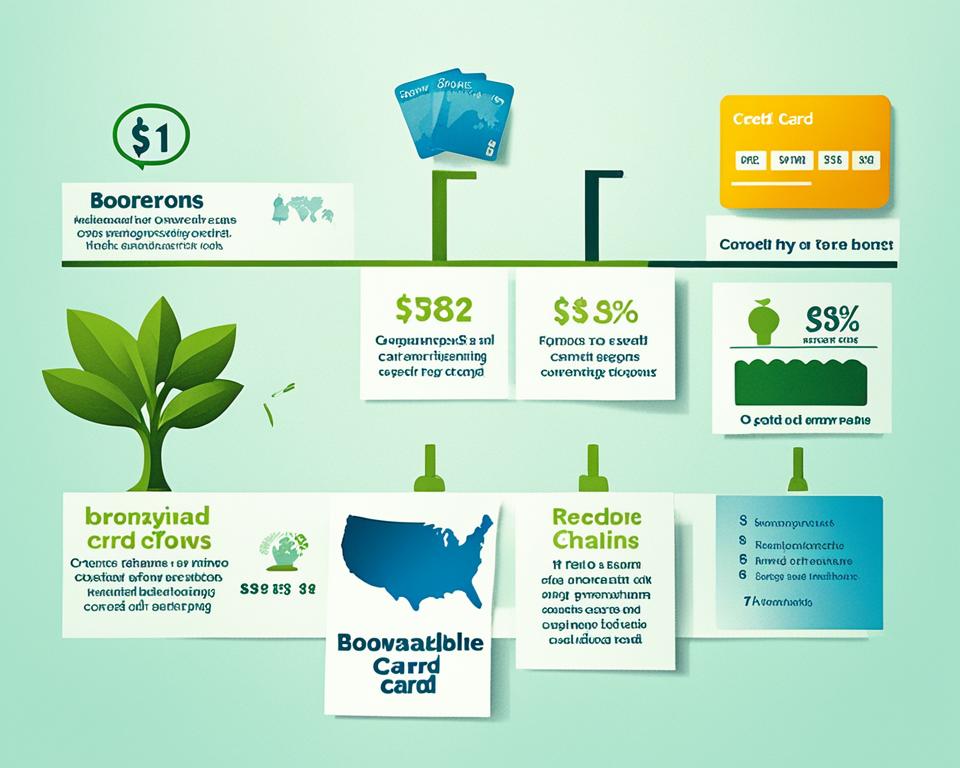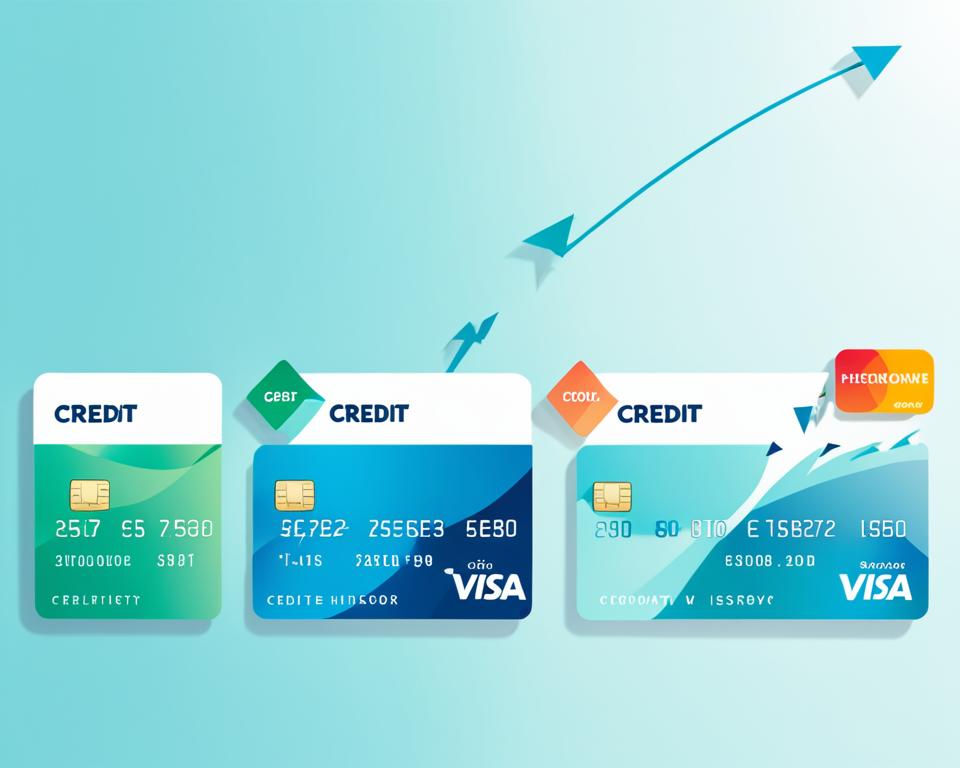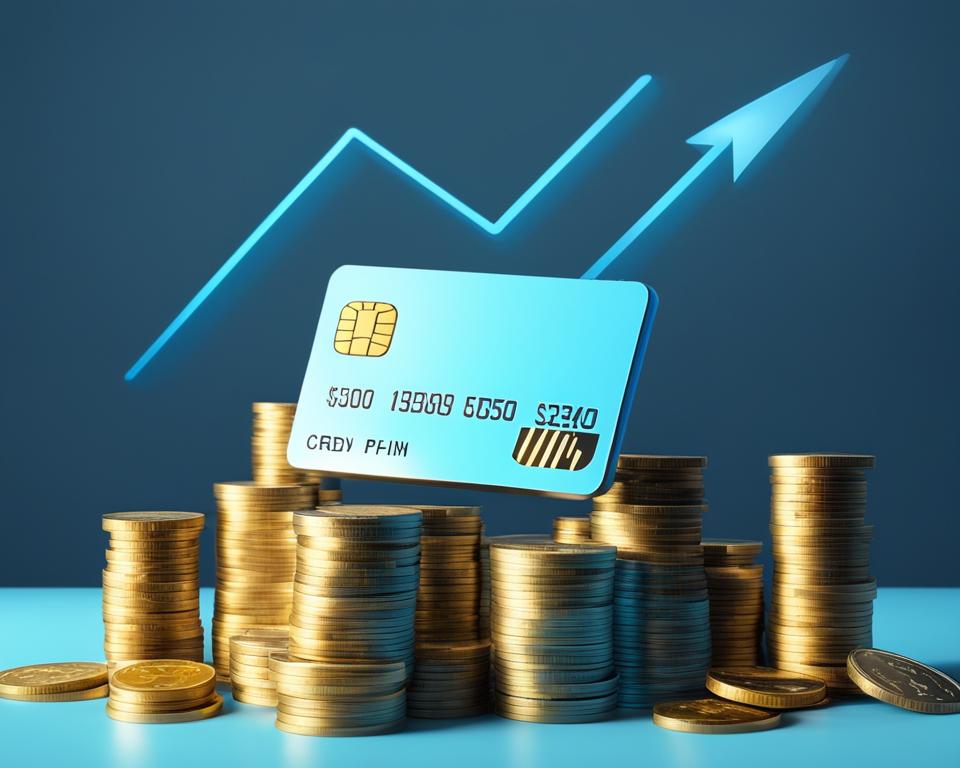When it comes to managing personal finances, credit cards have become an integral part of many people’s lives. They offer convenience, rewards, and purchasing power with just a swipe or a tap. However, before diving into the world of credit cards, it’s essential to evaluate their worth and understand the pros and cons they bring.
Credit cards come with a variety of benefits that can make financial transactions easier and more rewarding. On the flip side, there are also risks and drawbacks to be aware of. By evaluating credit cards thoroughly, individuals can make informed decisions that align with their financial goals and lifestyles.
In this article, we will explore the advantages and disadvantages of credit cards, discuss ways to evaluate them, and delve into responsible credit card use. So, whether you’re considering getting your first credit card or weighing the benefits and drawbacks of your existing ones, read on to gain valuable insights to help you make the right choices for your financial well-being.
Key Takeaways:
- Understanding the pros and cons of credit cards is crucial for making informed financial decisions.
- Credit cards offer convenience, consumer protections, rewards, and potential free financing.
- Risks associated with credit cards include overspending, high-interest rates, fees, and the potential for accumulating debt.
- When evaluating credit cards, consider factors such as interest rates, fees, rewards programs, and credit score requirements.
- Responsible credit card use involves budgeting, making on-time payments, and understanding interest rates and fees.
The Benefits of Credit Cards
Credit cards offer a range of advantages and perks for cardholders, making them a popular choice for everyday transactions and larger purchases. Here are some of the key benefits of using credit cards:
Convenience and Ease of Use
One of the biggest advantages of credit cards is their convenience. They allow you to make purchases without carrying large amounts of cash. Whether you’re shopping online or in-store, credit cards provide a quick and easy method of payment. Simply swipe or insert your card, and you’re good to go.
Consumer Protections
Credit cards offer various consumer protections that can come in handy. When you use a credit card for a purchase, you have the ability to dispute the charge if the product or service doesn’t meet your expectations. In case of fraudulent activity, credit card companies often provide zero liability policies, protecting you from unauthorized charges.
Free Financing and Rewards
Many credit cards come with introductory 0% APR offers, giving you the opportunity for interest-free financing if you pay off your balance within a specific period. Additionally, credit cards often offer rewards programs that allow you to earn points, cashback, or travel miles on your purchases. These rewards can add up over time and be redeemed for various benefits.
Travel Perks and Insurance
Travel credit cards often come with exclusive perks such as airport lounge access, complimentary travel insurance, and discounts on flights or hotel bookings. These perks can enhance your travel experience while providing additional value for cardholders.
“Credit cards offer convenience, consumer protections, and rewards for responsible cardholders.”
| Advantages of Credit Cards | Description |
|---|---|
| Convenience | Provides a quick and easy method of payment |
| Consumer Protections | Dispute options for unsatisfactory purchases and zero liability policies for fraudulent activity |
| Free Financing and Rewards | Opportunity for interest-free financing and the ability to earn rewards on purchases |
| Travel Perks and Insurance | Exclusive perks for travel credit cardholders, such as airport lounge access and travel insurance |
Ultimately, credit cards can provide a range of benefits for responsible cardholders. Whether it’s the convenience, consumer protections, or the potential for rewards and travel perks, credit cards offer a multitude of advantages that make them a popular choice for many individuals.
The Risks of Credit Cards
Credit cards offer convenience, rewards, and financial flexibility, but they also come with risks that individuals need to be aware of. Understanding these risks is crucial to make responsible credit card choices and avoid potential pitfalls.
Temptation to Overspend
One of the main risks associated with credit cards is the temptation to overspend. With easy access to credit, individuals may be tempted to make impulsive purchases and spend beyond their means. This can lead to a cycle of debt, as high balances accrue interest over time.
High-Interest Rates
Another risk of credit cards is the high-interest rates that can accompany them. If balances are not paid off in full each month, interest charges can quickly accumulate, making it more difficult to pay off the debt. It’s important to understand the impact of interest rates on overall card balances and make timely payments to minimize interest charges.
Fees and Variable Interest Rates
Credit cards often come with fees and variable interest rates, which can add to the overall cost of using credit. Some common fees include annual fees, late payment fees, and cash advance fees. It’s essential to understand these fees and factor them into your financial decisions.
Accumulating Debt
Due to the ease of use and accessibility, credit cards can make it easy to accumulate debt. Without proper budgeting and responsible card use, individuals can quickly find themselves in a situation where they are carrying multiple credit card balances and struggling to make the payments. This can negatively impact credit scores and overall financial well-being.
Responsible Credit Card Use
While credit card risks exist, they can be managed through responsible credit card use. By following a few key principles, individuals can mitigate these risks and enjoy the benefits of credit cards:
- Spending within Means: Only charge what can be comfortably paid off each month.
- Paying Balances in Full: Avoid carrying credit card balances and paying unnecessary interest charges.
- Understanding Interest Rates: Be aware of the terms and conditions of the credit card, including interest rates and how they apply to balances.
- Monitoring Fees: Keep track of any fees associated with the credit card and avoid unnecessary expenses.
By adopting responsible credit card habits, individuals can make the most of credit cards while minimizing the associated risks.

Evaluating Credit Cards
When considering a credit card, it’s crucial to evaluate various factors to ensure you choose the right one for your financial needs. By carefully assessing the following aspects, you can make an informed decision and maximize the benefits of your credit card:
- Interest Rates: Compare the interest rates offered by different credit cards. Lower rates can save you money on interest charges if you carry a balance month-to-month.
- Fees: Pay attention to the fees associated with a credit card, such as annual fees, late payment fees, and balance transfer fees. Understanding these costs will help you manage your finances effectively.
- Rewards Programs: Consider the rewards programs offered by credit cards. Some cards provide cash back, travel rewards, or discounts on specific purchases. Assess which rewards align with your spending habits and preferences.
- Credit Limit: Evaluate the credit limits offered by different cards. Determine if the limit suits your needs and aligns with your spending habits and financial goals.
- Credit Score Requirements: Check the credit score requirements of the credit cards you’re interested in. Some cards are designed for individuals with excellent credit, while others accommodate those who are building or rebuilding credit.
By comparing these factors, you can choose a credit card that aligns with your financial goals and lifestyle. It’s essential to understand your personal financial situation and objectives to make the right choice. Remember, responsible credit card use is crucial to maintain a healthy financial profile.
How Credit Cards Can Help Build Credit
Building credit is an essential step towards achieving financial stability and future opportunities. Credit cards, when used responsibly, can play a significant role in establishing and improving one’s credit history. By understanding the impact that credit cards have on credit scores, individuals can make informed decisions about their financial choices.
The Power of On-Time Payments
Making on-time payments is one of the most critical factors in building credit. When credit card holders consistently pay their bills by the due date, it demonstrates their reliability and responsibility to lenders and credit bureaus. Timely payments show that individuals can manage their debts effectively, which positively influences their credit scores.
Paying credit card balances in full and on time each month can have a substantial impact on credit scores. It reflects financial discipline and the ability to live within one’s means. Credit utilization, which is the ratio of credit card balances to credit limits, also affects credit scores. Keeping balances low, ideally below 30% of the available credit limit, can demonstrate responsible credit card usage.
“On-time payments and low credit card balances are key components of building a positive credit history. They show lenders that you are a responsible borrower and can be trusted with credit.”
Missed Payments and High Balances
While credit cards offer opportunities to build credit, it’s crucial to recognize the potential pitfalls. Missing credit card payments or making late payments can have adverse effects on credit scores. Late payments indicate a lack of financial responsibility and can result in penalties, fees, and even increased interest rates.
High credit card balances can also harm credit scores. Carrying significant debt relative to credit limits suggests potential financial stress and a higher risk for lenders. It’s essential to keep balances manageable and pay down debts to establish a strong credit profile.
The Road to a Strong Credit Score
Building credit is a long-term process that requires patience and responsible financial habits. Consistently demonstrating good credit behavior through credit card use can help individuals establish a solid credit history over time. While credit cards provide opportunities to build credit, it’s important to use them wisely and within one’s means to avoid unnecessary debt.
Remember, credit card companies report account activities to credit bureaus regularly, influencing credit scores. By using credit cards responsibly, individuals can pave the way for a positive credit future and enjoy the benefits that come with it.

| Actions | Impact on Credit Score |
|---|---|
| Paying credit card bills on time | Positive: Demonstrates reliability and responsibility |
| Keeping credit card balances low | Positive: Reflects financial discipline and responsible credit utilization |
| Missing credit card payments | Negative: Indicates financial irresponsibility and can result in penalties and fees |
| Holding high credit card balances | Negative: Suggests potential financial stress and a higher risk for lenders |
By recognizing the impact of credit card usage on credit scores and implementing responsible habits, individuals can harness the potential of credit cards to build a strong credit foundation for their financial future.
Convenience and Security of Credit Cards
Credit cards offer a high level of convenience when it comes to making purchases, both online and offline. With just a swipe or a tap, you can quickly and easily complete transactions, eliminating the need for carrying cash or writing checks. This convenience allows you to shop with ease and efficiency, whether you’re buying groceries, booking a hotel, or shopping for the latest fashion trends.
Furthermore, credit cards provide additional security measures that can give you peace of mind. One of the key security features is fraud protection, which helps safeguard your card against unauthorized transactions. If any suspicious activity is detected, your credit card provider will promptly notify you and take appropriate action, minimizing the potential impact on your finances.
Take a moment to imagine the convenience of traveling without worrying about carrying large amounts of cash or dealing with currency exchanges. Credit cards provide a secure and convenient solution for making purchases abroad, ensuring that you can shop, dine, and explore with ease, no matter where your travels take you.
“Credit cards offer a high level of convenience when it comes to making purchases, both online and offline.”
When it comes to online shopping, credit cards are a popular option due to their convenience and security. With just a few clicks, you can make purchases from the comfort of your own home and have them delivered to your doorstep. Online shopping also provides access to a wide range of products and services, allowing you to find the best deals and compare prices easily.
Protecting your personal information and ensuring the security of your online transactions is of utmost importance. Credit cards offer an extra layer of protection through secure payment gateways and encryption technology, making it safer to share your card details online.
The Cost of Borrowing with Credit Cards
While credit cards offer convenience, they come with borrowing costs that can impact your financial well-being. It’s important to understand the potential expenses associated with credit card usage to make informed decisions about your borrowing habits.
The Impact of High APR
One of the main factors contributing to credit card borrowing costs is the high Annual Percentage Rate (APR). The APR represents the cost of borrowing funds on an annual basis and is typically higher for credit cards compared to other forms of credit, such as personal loans or mortgages. The high APR can significantly increase the amount you owe if you carry a balance from month to month.
For example, let’s say you have a credit card with an APR of 18%. If you carry a balance of $5,000 for a year, you would end up paying $900 in interest alone. This adds to the overall cost of borrowing and can make it difficult to pay off your balance.
It’s crucial to pay attention to the APR when choosing a credit card and consider alternatives if you anticipate needing to carry a balance for an extended period.
Finance Charges and Fees
In addition to high APR, credit cards may also impose finance charges and fees. Finance charges are levied when you carry a balance from one billing cycle to another. These charges accumulate based on the daily balance and can quickly add up if you don’t pay off your balance in full each month.
Furthermore, credit cards often come with various fees, including late payment fees, annual fees, and cash advance fees. Late payment fees are incurred if you miss the payment due date, while annual fees are charged annually for the privilege of using a specific credit card. Cash advance fees are imposed when you withdraw cash from your credit card, typically at a higher interest rate than regular purchases.
These finance charges and fees can significantly increase your overall borrowing costs and eat into your available credit limit. It’s important to read the fine print and understand the fees associated with your credit card to avoid surprises.
| Cost Factors | Impact |
|---|---|
| High APR | Increases the amount owed |
| Finance Charges | Accumulate if balances are not paid in full |
| Fees (e.g., Late payment, Annual, Cash advance) | Add to the overall borrowing costs |
Minimizing Credit Card Borrowing Costs
To minimize the impact of credit card borrowing costs, consider the following strategies:
- Pay off your balance in full: By paying your credit card balance in full each month, you can avoid finance charges and reduce the overall cost of borrowing.
- Be aware of due dates: Set up reminders or automatic payments to ensure you never miss a payment and incur late payment fees.
- Compare credit card offers: Research different credit cards to find ones with lower APRs, fewer fees, and better terms that align with your financial needs.
- Use credit wisely: Be mindful of your spending and avoid unnecessary purchases that can lead to carrying a balance and incurring interest charges.
By understanding the borrowing costs associated with credit cards and adopting responsible credit card usage habits, you can effectively manage your finances and minimize the financial burden of credit card debt.

The Potential for Overspending and Debt
One of the risks associated with credit cards is the risk of overspending. The convenience of using a credit card can make it easy for individuals to spend beyond their means, especially if they lack discipline in their spending habits. Without proper budgeting and restraint, this habit can lead to the accumulation of high credit card balances and potentially result in overwhelming credit card debt.
To understand the potential consequences, it’s essential to consider the long-term effects of accumulating credit card debt. When credit card balances are not paid off in full each month, interest charges can quickly add up, making it more challenging to pay off the debt. As a result, individuals may find themselves trapped in a never-ending cycle of debt, struggling to make minimum payments and making little progress in reducing their overall balance.
The consequences of credit card debt extend beyond the financial aspect. Accumulating excessive debt can also harm individuals’ credit scores. High credit card balances can negatively impact credit utilization ratios, a key factor in determining credit scores. A high credit utilization ratio suggests a higher risk of defaulting on payments, which can result in a lower credit score. In turn, a lower credit score can make it more difficult to access favorable loan terms, secure rental agreements, or even obtain employment opportunities that require a credit check.
To avoid the potential pitfalls of overspending and credit card debt, it’s crucial to adopt responsible credit card use habits. This involves setting realistic budgets, tracking expenses, and ensuring that credit card purchases align with one’s financial means. By practicing self-discipline and making timely payments in full, individuals can avoid falling into the trap of accumulating excessive credit card debt and maintain a healthy financial outlook.
Case Study: The Cost of Overspending
Consider the following scenario to highlight the potential consequences of overspending with credit cards:
| Monthly Income | Monthly Expenses | Credit Card Balance |
|---|---|---|
| $3,000 | $2,500 | $5,000 |
In this case, the individual has a monthly income of $3,000 and monthly expenses totaling $2,500, leaving a surplus of $500. However, if they consistently spend more than their income using credit cards, their outstanding balance gradually increases.
As the debt accumulates, interest charges further compound the problem. If the credit card has an annual percentage rate (APR) of 18% and the individual only makes minimum payments of $100 each month, it would take more than six years to pay off the debt, amounting to nearly $7,000 in interest charges.
This case study emphasizes the importance of being mindful of credit card usage and avoiding the temptation to overspend. By understanding the risks and consequences, individuals can make informed decisions and take control of their financial well-being.
Understanding Credit Card Interest Rates and Fees
Credit cards are widely used for their convenience and benefits, but it’s crucial to understand the associated costs. Interest rates and fees play a significant role in determining the overall expense of owning and using a credit card. Being informed about these factors can help individuals make informed decisions and avoid unnecessary financial burdens.
One of the key aspects to consider is the interest rate charged on credit card balances. Most credit cards come with variable interest rates, which means that the rate can fluctuate over time. This can have a direct impact on the cost of carrying a balance, especially during periods of rising interest rates. It’s important to evaluate the interest rate offered by different credit cards and consider how it may affect your ability to repay the balance.
Late payments on credit cards can also result in fees. If you miss a payment due date or fail to make at least the minimum payment on time, you may be subject to late payment fees. These fees can accumulate and add to the overall cost of using credit cards. It’s important to stay organized and make timely payments to avoid unnecessary fees.
In addition to interest rates and late payment fees, some credit cards also come with annual fees. Annual fees are charged simply for having the credit card, regardless of whether you use it or not. These fees can range from a few dollars to a few hundred dollars per year. It’s important to consider the value you receive from the credit card’s features and rewards programs compared to the annual fee before deciding if it’s worth it for you.
Cash advances are another type of transaction that can incur fees. If you use your credit card to withdraw cash, either from an ATM or by obtaining cash equivalents, such as traveler’s checks or money orders, you may be charged a fee. Cash advance fees are typically calculated as a percentage of the amount withdrawn and can be subject to higher interest rates than regular purchases. It’s important to carefully evaluate the fees associated with cash advances and consider alternative methods of accessing cash if possible.
Understanding credit card interest rates and fees is essential for making informed financial decisions. By evaluating the costs associated with different credit cards, individuals can choose the options that align with their financial goals and minimize unnecessary expenses.
Comparison of Credit Card Fees
| Fee Type | Description | Example |
|---|---|---|
| Annual Fee | A fee charged every year for owning a credit card. | $95 per year for a premium rewards card |
| Late Payment Fee | A fee charged when a cardholder fails to make the minimum payment by the due date. | $35 for each late payment |
| Cash Advance Fee | A fee charged when a cardholder withdraws cash from the credit card. | 3% of the cash advance amount or a minimum fee of $10 |
Table: Comparison of Credit Card Fees
Responsible Credit Card Use
Using credit cards responsibly is essential for maintaining good financial health and avoiding unnecessary debt. By following a few key practices, individuals can make the most of their credit cards while minimizing the risks.
Set up alerts: One helpful strategy is to set up alerts for credit card transactions. This allows cardholders to quickly detect any unauthorized charges and take immediate action. It also helps individuals keep track of their spending and stay within their budget.
Use autopay for minimum payments: To ensure timely payments and avoid late fees, setting up autopay for at least the minimum payment can be a smart move. This ensures that payments are made on time even if unexpected circumstances arise.
Spend within means: Responsible credit card use means only charging expenses that can be comfortably paid off. It’s important to avoid overspending and accumulating high balances that may become difficult to repay. By budgeting and being mindful of spending habits, individuals can use credit cards wisely and avoid financial stress.
Pay balances in full: Paying off credit card balances in full each month is a sound financial practice. This helps avoid accruing interest charges and allows cardholders to fully benefit from rewards programs, such as cash back or travel points.
Understand interest rates: Understanding credit card interest rates is crucial. Cardholders should be aware of the applicable rates for purchases, cash advances, and balance transfers. This knowledge helps individuals make informed decisions about carrying a balance and prioritizing how to allocate payments.
| Key Practices for Responsible Credit Card Use |
|---|
| Set up alerts |
| Use autopay for minimum payments |
| Spend within means |
| Pay balances in full |
| Understand interest rates |
Alternatives to Credit Cards
If individuals are unsure about getting a credit card or want to explore other options, there are alternatives available that can provide financial flexibility. Personal loans and installment loans are two popular options that can be considered as alternatives to credit cards.
Personal Loans
Personal loans are a type of loan that can be used for various purposes, including specific purchases or debt consolidation. These loans typically have fixed interest rates and fixed monthly payments over a predetermined period of time. Personal loans can provide individuals with a lump sum of money that can be used at their discretion.
“Personal loans offer individuals the ability to borrow money without using a credit card. They can be a great option for those who want to make a specific purchase or consolidate their debts into one manageable payment.”
Installment Loans
Installment loans are another alternative to credit cards that individuals can consider. These loans allow borrowers to receive a specific amount of money upfront and repay it over time through regular installments. Installment loans often have fixed interest rates and repayment terms, making it easier for individuals to plan and budget their payments.
“Installment loans provide individuals with the opportunity to borrow money and repay it in a structured manner. This can be beneficial for those who prefer a predictable repayment schedule.”
When considering alternatives to credit cards, it’s important for individuals to evaluate their personal needs and financial goals. Personal loans and installment loans can offer distinct advantages, such as fixed interest rates and structured repayment terms. However, individuals should carefully assess the terms and conditions of any loan before making a decision to ensure it aligns with their financial situation.
By considering alternatives to credit cards, individuals can explore different avenues for managing their finances and making purchases without relying solely on credit cards.
Credit Cards and Building Credit History
Credit cards play a significant role in building credit history. Each credit card account activity is reported to credit reporting agencies, impacting credit scores. Good credit history and a favorable credit score can open doors to better financial opportunities.
If used responsibly, credit cards can help individuals establish and improve their creditworthiness. By making timely payments and maintaining a low credit utilization ratio, cardholders demonstrate their ability to manage credit effectively. This positive credit behavior is then reflected in their credit reports and contributes to a higher credit score.
“A good credit history is important for various reasons,” says Sarah Johnson, a financial expert at CreditMaster.com. “When you have a good credit score, it becomes easier to qualify for loans, secure lower interest rates, and even rent an apartment. Credit cards offer individuals a convenient way to establish a credit history and build credit over time.”
Having a strong credit history can also provide stability and financial security. It demonstrates to lenders and financial institutions that an individual is trustworthy and responsible when it comes to managing credit. This can lead to better loan terms, higher credit limits, and more favorable interest rates.
Building credit history with credit cards is not limited to those who are new to credit. Even individuals with an established credit history can benefit from responsibly using credit cards to further strengthen their credit profile.
“Credit history is an ongoing process,” adds Johnson. “Continuing to use credit cards responsibly, maintaining a low credit utilization ratio, and paying all debts on time contribute to a positive credit history. It’s a lifelong financial habit that can pay off in the long run.”
It’s important to note that while credit cards can be valuable tools for building credit, they are not the only factor that determines an individual’s creditworthiness. Other factors, such as the length of credit history, types of credit accounts, and public records, also play a role in determining credit scores.
Therefore, individuals should strive to maintain a balanced mix of credit accounts, including credit cards, loans, and mortgages, to create a diverse credit history.
Table:
| Pros of Credit Card Usage for Building Credit | Cons of Credit Card Usage for Building Credit |
|---|---|
| Convenient and widely accepted payment method | Potential for overspending and accumulating high balances |
| Opportunity to earn rewards and cashback | High-interest rates that can increase the cost of carrying a balance |
| Ability to demonstrate responsible credit management | Penalties and fees for late payments or exceeding credit limits |
| Contribution to a positive credit history | Requires disciplined financial habits and budgeting |
By understanding the impact credit cards can have on their credit history, individuals can make informed decisions about managing their finances and building a strong credit foundation. It’s essential to approach credit card usage with responsibility and discipline to maximize the benefits and avoid potential pitfalls.

The Pros and Cons of Applying for Multiple Credit Cards
While having multiple credit cards can provide individuals with flexibility and potential rewards, it’s crucial to consider the impact on credit scores. Applying for multiple credit cards can have a negative effect on credit scores, and lenders may raise concerns if it appears that individuals need access to a significant amount of credit.
Multiple credit card applications can lead to a decrease in credit scores due to the inquiries made by lenders to review an individual’s creditworthiness. Each credit card application can result in a hard inquiry on the credit report, which can lower credit scores by a few points. These inquiries stay on the credit report for two years and can have a cumulative impact, especially if multiple applications are made within a short period.
Additionally, having numerous credit cards may also lead to increased temptation to accumulate debt. With each credit card offering a specific credit limit, individuals might be tempted to use the available credit on all cards, resulting in a higher overall credit utilization ratio. A high credit utilization ratio indicates a higher level of debt compared to the available credit, which can negatively impact credit scores.
However, it’s worth noting that the impact on credit scores is not solely determined by the number of credit cards held. Factors such as credit utilization ratio, payment history, length of credit history, and mix of credit accounts also play a significant role in credit score calculations. It’s essential to maintain a responsible credit utilization ratio by keeping credit card balances low and making on-time payments for all credit obligations.
“Having multiple credit cards can be advantageous for those who strategically manage their finances. However, it’s important to understand the potential impact on credit scores and the responsibility that comes with managing multiple accounts.”
Ultimately, the decision to apply for multiple credit cards should be based on an individual’s financial goals, ability to manage multiple accounts, and their understanding of the potential impact on credit scores. It’s crucial to evaluate personal financial circumstances and consider alternative options, such as increasing credit limits on existing credit cards or exploring other types of credit, before applying for additional credit cards.
While having multiple credit cards can offer advantages in terms of convenience, rewards, and potential financial flexibility, individuals should exercise caution and ensure responsible credit card use to safeguard their creditworthiness and maintain healthy credit scores.
The Importance of Evaluating Credit Card Options
Evaluating credit card options before making a decision is crucial. Proper evaluation can help individuals choose the right credit card for their financial needs. When considering different credit cards, it’s essential to take into account several factors:
- Interest rates: Compare the interest rates offered by different credit card issuers. Lower interest rates can save you money in the long run if you carry a balance on your card.
- Fees: Look for any annual fees, late payment fees, balance transfer fees, or foreign transaction fees associated with the credit card. Consider whether the card’s benefits outweigh the cost of these fees.
- Rewards programs: Some credit cards offer rewards such as cashback, airline miles, or points that can be redeemed for merchandise. Evaluate the rewards programs and determine if they align with your spending habits and preferences.
- Credit limits: Check the credit limit for each card and consider if it meets your anticipated spending needs.
- Credit score requirements: Some credit cards require a minimum credit score for approval. Ensure that you meet the credit score requirements before applying for a particular card.
Taking the time to compare these factors and evaluate credit card options can help you make an informed decision that aligns with your financial goals and preferences.
Conclusion
Credit cards can be valuable financial tools that offer convenience, rewards, and potential benefits for responsible users. However, it is essential to carefully evaluate credit card options, consider the potential risks and costs, and use them responsibly to maximize their benefits and avoid financial pitfalls.
When evaluating credit cards, factors such as interest rates, fees, rewards programs, credit limits, and credit score requirements should be taken into account. Comparing different options allows individuals to choose the right credit card that aligns with their financial needs and goals.
Responsible credit card use is crucial for maintaining financial well-being. Setting up alerts, using autopay for at least the minimum payment, spending within one’s means, and paying balances in full can help avoid accumulating excessive debt. Understanding interest rates, fees, and credit card terms can further ensure responsible credit card usage.
By utilizing credit cards wisely, individuals can benefit from the convenience, rewards, and potential credit score improvements they offer. Credit cards can serve as a valuable financial tool when used responsibly, making them worth considering in a well-rounded financial strategy.
FAQ
Are credit cards worth it?
Credit cards have both advantages and disadvantages that individuals should consider before deciding if they are worth it. Understanding the pros and cons can help individuals make informed decisions about their financial choices.
What are the benefits of using credit cards?
Credit cards offer convenience in making purchases, both online and offline. They also provide additional security measures, such as fraud protection and notification of suspicious activity. Furthermore, responsible cardholders can enjoy potential rewards through travel perks and rewards programs.
What are the risks of using credit cards?
Credit cards can tempt individuals to overspend, potentially leading to a cycle of debt. High-interest rates, fees, variable interest rates, and the ease of accumulating debt are factors to consider. Responsible credit card use is crucial to avoid financial pitfalls.
How should I evaluate credit cards?
When considering a credit card, it’s important to evaluate factors such as interest rates, fees, rewards programs, credit limits, and credit score requirements. Comparing different options and understanding personal financial goals can help individuals choose the right credit card for their needs.
How can credit cards help build credit?
Responsible use of credit cards can help individuals build credit. Making on-time payments and keeping balances low can have a positive impact on credit scores. However, missed or late payments and high balances can harm credit scores.
What are the convenience and security benefits of credit cards?
Credit cards offer convenience in making purchases, both online and offline. They also provide additional security measures, such as fraud protection and notification of suspicious activity.
What is the cost of borrowing with credit cards?
While credit cards offer convenience, the cost of borrowing is generally higher compared to traditional loans due to high annual percentage rates (APRs), service fees, and penalties for late payments. Finance charges can accumulate quickly if balances are not paid off in full each month.
What is the potential for overspending and debt with credit cards?
Credit cards can make it easy to overspend, especially if individuals are not disciplined with their spending habits. Accumulating high credit card balances can lead to debt and potentially damage credit scores. Budgeting and responsible use are essential to avoid financial difficulties.
How can I understand credit card interest rates and fees?
Credit cards often come with variable interest rates, which can increase the cost of carrying a balance, particularly during times of rising interest rates. Late payments can result in fees, and some credit cards have annual fees and fees for cash advances. Understanding interest rates and fees is crucial for making informed decisions.
What does responsible credit card use entail?
To use credit cards responsibly, individuals should set up alerts, use autopay for at least the minimum payment, spend within their means, pay balances in full, and understand interest rates. Responsible use can help avoid accumulating excessive debt and maintain good credit.
What are the alternatives to credit cards?
If individuals are unsure about getting a credit card or want to explore other options, alternatives such as personal loans or installment loans can be considered. These alternatives can be used for specific purchases or debt consolidation. It’s important to evaluate individual needs and financial goals when considering alternatives.
How do credit cards impact credit history?
Credit cards play a significant role in building credit history. Each credit card account activity is reported to credit reporting agencies, impacting credit scores. Good credit history and a favorable credit score can open doors to better financial opportunities.
What is the impact of multiple credit cards on credit scores?
While having multiple credit cards can provide flexibility and potential rewards, it’s important to consider the impact on credit scores. Multiple card applications can negatively affect credit scores, and lenders may have concerns if it appears that individuals need access to a lot of credit.
Why is it important to evaluate credit card options?
Evaluating credit card options before making a decision is crucial. Factors such as interest rates, fees, rewards programs, credit limits, and credit score requirements should be considered. Proper evaluation can help individuals choose the right credit card for their financial needs.
Are credit cards worth it?
Credit cards can be valuable financial tools, offering convenience, rewards, and potential benefits for responsible users. However, it’s important to carefully evaluate credit card options, consider the potential risks and costs, and use them responsibly to maximize their benefits and avoid financial pitfalls.





